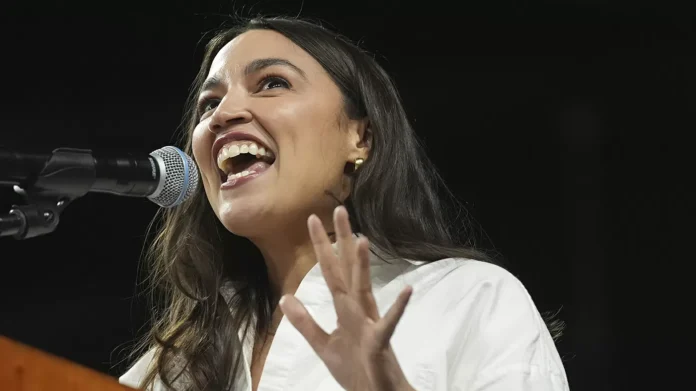Calls for Generational Change Among Democrats Gain Momentum Ahead of 2026 Midterms
As the Democratic Party reflects on its recent losses in the 2022 midterms, calls for generational change within the party are growing louder. With the party seeking to chart a new path forward, there is a growing sense that a fresh, younger perspective is needed to propel the party to victory in the 2026 midterms.
On Wednesday, the Democratic National Committee (DNC) Vice Chair David Hogg’s group, Leaders We Deserve PAC, launched a $20 million effort aimed at launching primary challenges against House Democratic incumbents in safe seats. The move has been met with both excitement and skepticism within the party, but it highlights the growing desire for change among Democrats.
The push for generational change is not new within the Democratic Party. In recent years, there has been a growing recognition that the party needs to appeal to a younger, more diverse electorate if it wants to remain competitive in the long term. This was evident in the 2020 presidential primary, where a record number of young candidates, including Pete Buttigieg, Alexandria Ocasio-Cortez, and Beto O’Rourke, captured the attention of voters.
But now, as the party looks ahead to the 2026 midterms, the urgency for change has only intensified. With the GOP gaining ground in traditionally blue states and districts, there is a growing sense that the Democratic Party needs to evolve if it wants to remain relevant and competitive.
The Leaders We Deserve PAC’s $20 million effort is a bold move that reflects this urgency for change. It aims to support a new generation of leaders who can bring fresh ideas and perspectives to the party. The PAC has already identified several potential candidates, including young activists, community organizers, and first-time candidates, who could challenge incumbent Democrats in safe seats.
The move has been met with some resistance from established Democrats, who fear that primary challenges could divide the party and weaken its chances in the general election. But supporters of the effort argue that a healthy primary process can invigorate the party and bring in new voices and ideas.
One of the main criticisms of the Democratic Party in recent years has been its lack of diversity and representation. While the party prides itself on being inclusive and progressive, there is a growing recognition that it needs to do more to elevate marginalized voices within its own ranks. The push for generational change is seen as a step in the right direction towards creating a more diverse and representative party.
Moreover, the timing of this effort is crucial. With the 2026 midterms just a few years away, now is the time to start cultivating a new generation of leaders who can connect with young and diverse voters, energizing the base and expanding the party’s reach.
The push for generational change also aligns with the changing political landscape in America. As Millennials and Gen Zers become a larger share of the electorate, their priorities and values must be reflected in the party’s platform and leadership. This means addressing issues like climate change, racial justice, and economic inequality, which are top concerns for young voters.
While there is no denying that the Democratic Party has a long history of accomplished and dedicated leaders, it is time for a new generation to take the reins and lead the party forward. This does not mean dismissing or disregarding the contributions of older leaders, but rather creating a more balanced and inclusive leadership that reflects the diversity of the party and the country.
In conclusion, the call for generational change among Democrats is gaining momentum as the party seeks to chart a path forward towards the 2026 midterms. The Leaders We Deserve PAC’s $20 million effort is a bold and necessary step towards cultivating a new generation of leaders who can energize the party and connect with young and diverse voters. As the party looks to the future, it must embrace change and diversity to remain relevant and competitive in the ever-evolving political landscape.

